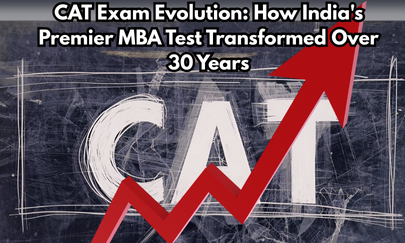
Finance is the lifeline of any business, and its management requires specialized skills and knowledge. Pursuing an MBA in Finance opens doors to lucrative and challenging careers across industries. Whether it's investment banking, financial consulting, or asset management, an MBA in Finance equips you with the tools to make critical financial decisions, manage risk, and enhance the economic performance of organizations. In India, where the financial sector is thriving, many prestigious institutions offer MBA programs specializing in Finance. This blog explores the essential aspects of an MBA in Finance, its scope, career opportunities, and top MBA colleges in Finance in India.
What is an MBA in Finance?
An MBA in Finance is a two-year postgraduate program focusing on subjects like financial management, accounting, investment strategies, corporate finance, risk management, and banking. This program is designed to prepare students for a career in finance by providing in-depth knowledge of financial theories and practical applications.
Key subjects in an MBA Finance program often include:
- Financial Markets and Institutions
- Investment Management
- Corporate Finance
- Financial Planning and Analysis
- Risk Management
- Mergers and Acquisitions
- Taxation and Legal Aspects
Why Choose an MBA in Finance?
- Diverse Career Opportunities: Graduates with an MBA in Finance can pursue careers in investment banking, portfolio management, financial analysis, and corporate finance.
- High Earning Potential: The finance sector is known for offering competitive salaries, especially in fields like investment banking and consulting.
- Skill Development: The program enhances analytical, quantitative, and communication skills essential in the financial industry.
- Global Demand: Finance professionals are in demand worldwide, and an MBA in Finance can open opportunities for international careers.
Top Career Opportunities After an MBA in Finance
Some of the popular career roles for MBA Finance graduates include:
- Investment Banker: Specializes in capital raising, mergers, and acquisitions.
- Financial Analyst: Assists in financial planning, analysis, and strategy.
- Portfolio Manager: Manages investment portfolios for firms or individuals.
- Corporate Finance Manager: Focuses on financial planning and managing a company’s capital structure.
- Risk Manager: Identifies, analyzes, and mitigates financial risks within organizations.
Top MBA Colleges in Finance in India
India is home to several prestigious institutions offering specialized MBA programs in Finance. Here’s a list of some of the top colleges for MBA in Finance in India:
Indian Institute of Management (IIM), Ahmedabad
- Exams Accepted: CAT
- Total Fees: INR 23 Lakhs
- Highest Package: 1.46 CPA
Indian Institute of Management (IIM), Bangalore
- Exams Accepted: CAT
- Total Fees: INR 21 Lakhs
- Highest Package: 65 LPA
Indian Institute of Management (IIM), Calcutta
- Exams Accepted: CAT
- Total Fees: INR 27 Lakhs
- Highest Package: 1.2 CPA
Jamnalal Bajaj Institute of Management Studies
- Exams Accepted: MAH-CET, CAT, CMAT, MAT, ATMA
- Total Fees: INR 6 Lakhs
- Highest Package: 75 LPA
Faculty of Management Studies (FMS), University of Delhi
- Exams Accepted: CAT
- Total Fees: INR 1.92 Lakhs
- Highest Package: 1.23 CPA
SP Jain Institute of Management and Research (SPJIMR), Mumbai
- Exams Accepted: CAT, GMAT, XAT
- Total Fees: INR 17.5 Lakhs
- Highest Package: 81 LPA
Xavier’s Labour Research Institute, Jamshedpur (XLRI)
- Exams Accepted: XAT, GMAT
- Total Fees: INR 16.8 Lakhs
- Highest Package: 75 LPA
Management Development Institute (MDI), Gurgaon
- Exams Accepted: XAT, GMAT
- Total Fees: INR 19.8 Lakhs
- Highest Package: 63.3 LPA
Symbiosis Institute of Business Management, Pune
- Exams Accepted: SNAP
- Total Fees: INR 20.5 Lakhs
- Highest Package: 49 LPA
Institute of Management Technology, Ghaziabad (IMT)
- Exams Accepted: CAT
- Total Fees: INR 19.8 Lakhs
- Highest Package: 34.76 LPA
Admission Process for MBA in Finance
The admission process for an MBA in Finance typically involves:
- Entrance Exams: Most colleges accept scores from exams like CAT, XAT, GMAT, and MAT. IIMs accept CAT scores, while ISB also accepts GMAT.
- Personal Interview and Group Discussion: Shortlisted candidates are called for further rounds, which include group discussions, written ability tests, and personal interviews.
- Academic Background and Work Experience: Many institutions give weightage to a candidate’s past academic records and work experience in finance or related fields.
Skills Needed to Succeed in an MBA in Finance
To excel in an MBA in Finance program and a subsequent career, you’ll need:
- Analytical Skills: Strong analytical and quantitative skills to evaluate financial data.
- Attention to Detail: High level of accuracy and attention to detail is crucial in finance.
- Communication Skills: Ability to convey complex financial information in an understandable manner.
- Problem-Solving Abilities: Quick decision-making abilities are essential in dynamic financial environments.
- Ethical Judgment: High ethical standards to manage financial matters responsibly.
An MBA in Finance from a top college in India not only broadens career prospects but also equips you with skills that are in high demand in the financial industry. With various roles available across sectors, finance professionals play a vital role in the strategic planning and growth of businesses. If you are passionate about numbers, analytical thinking, and financial management, an MBA in Finance is a step toward a rewarding and challenging career.
Whether you aim to work in investment banking, risk management, or corporate finance, the right MBA program can serve as the launchpad for your career.
Any question in your mind?
Connect to our counsellor: 8826807515












